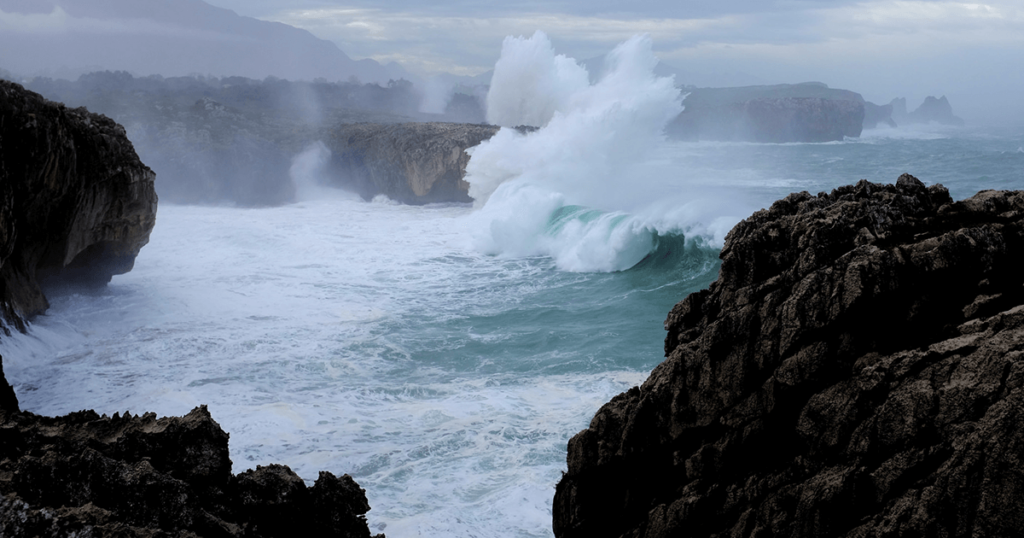
When the tide is high and the waves are strong here on the Asturian coast, the water batters the seawalls around harbors, and people will venture out on them to get a picture. If they’re lucky, they’ll get only a taste of the spray from a wave, and not be drenched or knocked off their feet or even swept into the foaming ocean, as happens to someone every year, and did this year during the first weekend in January, down the coast from me in Castrillón. One moment you’re on solid ground, the next you’re in the water, pounded and drowning. “Poor people,” I thought, “poor families.”
The ocean is a force to reckon with, not to take lightly, though it’s not the ocean alone that’s the culprit in these cases, but the addition of the wind, strong enough this past winter to have made those dangerously big waves a regular occurrence. The warnings appeared almost daily on the weather site I use, where the Spanish Avisos costeros is rendered in English as “Coastal events.” But search the internet for that English phrase, and you get weddings, family reunions, and corporate retreats, not perilous breakers.
Like family reunions, rough seas are spectacles, and to watch from near at hand as the waves crest above the seawall and spit and spatter across the walkway is a thrill. The danger, even the minor one of getting wet, adds excitement to the ocean’s show of brawn. “That was close!” I have thought as a wave slithers away under the white railing along the walk and falls back into the sea and the roiling crashing mass of water. Every year for the last five, sections of the railing along the walk above San Lorenzo Beach here in Gijón have been wrenched out of cement moorings and twisted and crumpled and altogether mangled, left half sticking up and half hanging down.
“Four Strong Winds” is a song from my childhood, when I listened to Ian and Sylvia and Joan Baez sing their versions on our phonograph. What I liked best was my mother singing it while she played the guitar, which she did for her grandchildren too. “Four strong winds that blow lonely, seven seas that run high,” she sang, looking up from her fingers on the fret board, “All those things that don’t change, come what may.”
Different, the song suggests, is the ebb and flow of human affection. In the wake of the January misfortune and holding in mind other such tragedies from an overwrought sea, I walked out along a breakwater on a calm day when the waves rubbed gently against the stones. What, I wondered, was the songwriter thinking of with that line about constant winds and seas? It was a sunny day and unusually warm, especially noticeable after the earlier unusual cold. Even with my mind on sad events, I was happy, and found it hard to believe in the troubles and adversity that can rise to engulf us. I didn’t linger, however, not trusting the winds and seas that on occasion cause our sorrows and on occasion end them.

